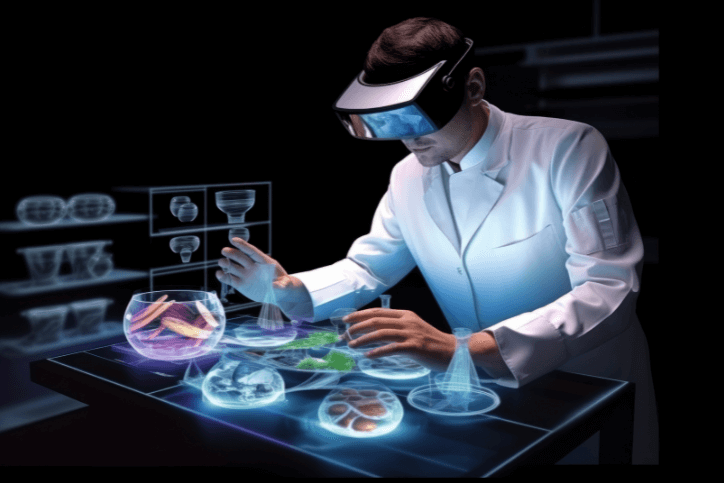The Role of AI in the Healthcare
Artificial Intelligence (AI) is transforming industries across the globe, and one of the most promising sectors for its application is healthcare. The integration of AI into the medical domain has led to groundbreaking advancements in diagnostics, treatment, patient care, and healthcare management. Here's how AI is revolutionizing the medical field:
1. Enhanced Diagnostics
AI-powered systems can analyze vast amounts of medical data quickly and accurately, offering enhanced diagnostic capabilities. Machine learning algorithms trained on medical images can detect early signs of diseases like cancer, neurological disorders, and cardiovascular conditions. AI-driven diagnostic tools not only improve accuracy but also reduce human error, enabling early detection and timely intervention.
2. Personalized Treatment Plans
AI helps create personalized treatment plans by analyzing patient data, including genetic profiles, medical history, and lifestyle factors. This approach enables healthcare providers to tailor treatments that suit the individual patient’s needs, leading to better outcomes. AI can also predict how a patient may respond to a certain medication or therapy, optimizing the treatment process.
3. AI in Surgery
AI-assisted robotic surgery is becoming more prevalent, offering precision, efficiency, and reduced recovery times for patients. Surgeons can perform complex procedures with greater accuracy, using AI to assist with decision-making and guide instruments during operations. AI's role in surgery also extends to training, where surgeons can practice on AI-powered simulators before performing real-life procedures.
4. Improving Radiology and Medical Imaging
AI has shown remarkable capabilities in interpreting medical imaging data, such as X-rays, MRIs, and CT scans. By identifying patterns in medical images, AI systems can help radiologists detect abnormalities that might be missed by the human eye. AI-driven imaging tools are particularly valuable for diagnosing conditions like cancer and heart disease, where early detection can significantly improve patient outcomes.
5. Drug Discovery and Development
AI is accelerating the drug discovery process, reducing the time and cost involved in bringing new treatments to market. Machine learning algorithms can sift through millions of chemical compounds and predict which ones are most likely to be effective in treating a particular condition. By automating parts of the research process, AI helps pharmaceutical companies develop new drugs faster and more efficiently.
6. Remote Monitoring and Telemedicine
AI-powered remote monitoring systems allow for continuous tracking of patients' vital signs, offering real-time insights to healthcare providers. AI can analyze the data collected from wearable devices and alert medical professionals if any abnormalities arise, improving patient safety and reducing hospital visits. In telemedicine, AI chatbots and virtual assistants are already assisting with symptom checks, appointment scheduling, and patient follow-up care.
7. Administrative Automation
Beyond clinical applications, AI is streamlining administrative tasks in healthcare. AI tools are automating tasks like scheduling, billing, and patient records management, freeing up time for healthcare professionals to focus on patient care. Natural language processing (NLP) systems are also being used to transcribe doctor-patient conversations, further reducing paperwork and administrative burden.
8. Predictive Analytics in Healthcare
Predictive analytics, powered by AI, is enabling proactive healthcare. AI models can analyze historical patient data to predict health outcomes, such as the likelihood of a disease reoccurring or how a patient will respond to a particular treatment. Hospitals are also using predictive analytics to manage resources, such as predicting patient admissions and optimizing staffing.
9. Ethics and Challenges
While AI offers numerous benefits, it also raises ethical considerations in healthcare. Ensuring patient data privacy, preventing algorithmic biases, and maintaining transparency in AI-driven decisions are critical challenges. Moreover, the reliance on AI in healthcare requires stringent regulatory frameworks to ensure the technology’s safety and effectiveness.
Conclusion
The role of AI in the medical domain is undeniable, reshaping healthcare in ways that were once unimaginable. From diagnostics and personalized treatment plans to administrative efficiency and predictive analytics, AI is enhancing the quality of care, reducing costs, and making healthcare more accessible. As AI continues to evolve, its potential in healthcare will only grow, paving the way for a future where medical breakthroughs and improved patient outcomes are driven by smart technology.

